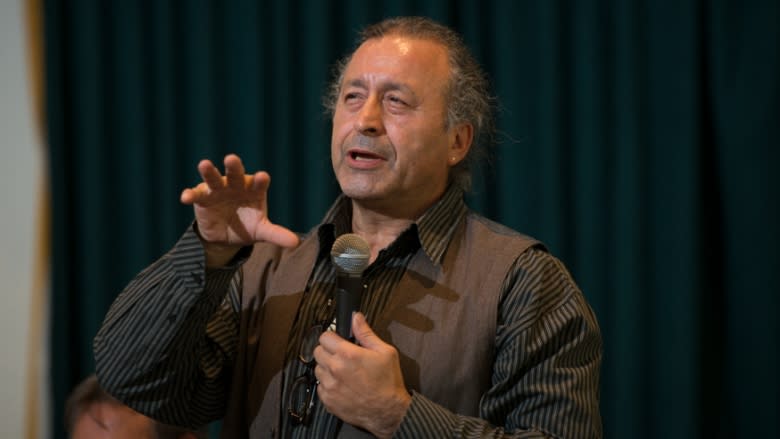5 First Nation chiefs reject new Great Slave Lake fishery strategy
Five First Nations chiefs from around Great Slave Lake say they cannot support the N.W.T. government's new fisheries strategy until there's an acceptable consultation process.
Dene National Chief Bill Erasmus says the relationship between the First Nations and DFO needs to be more clearly defined with respect to fisheries management.
"This whole [fisheries] initiative is really important, but if we're going to have economic activity like this that's directly related to our treaty rights, then our people need to be directly involved," Erasmus told CBC News.
Aims to triple output
On Monday, the N.W.T. Department of Industry, Tourism and Investment announced its new strategy in Hay River, which aims to triple fish output by 2021.
The plan recommends replacing the fish processing plant in Hay River within the next three years. It also suggests setting up packaging stations in Yellowknife and Fort Resolution, as well as encouraging fishing through the winter.
Stacy Linington, president of the N.W.T. Fishermen's Federation, said increasing production on Great Slave Lake is just the first step.
"Then we're going to be hoping to engage the people around Lac La Martre and a lot of the other inland lakes in the area," he said.
"There's no reason we can't have viable and economical commercial fisheries at several lakes in the North. That would help us with our business plan and would also provide financial rewards to the outlying areas."
'Astonishing' lack of consultation
Chiefs from the K'atl'odeeche, West Point, Lutsel K'e Dene, Yellowknives Dene, and Deh Gah Got'ie First Nations held a meeting on the K'atl'odeeche Reserve last weekend to discuss fisheries management and the proposed revitalization of the Great Slave Lake commercial fishery.
The federal Department of Fisheries and Oceans, Industry, Tourism and Investment, and the N.W.T. Fishermen's Federation were all invited to the meeting. Only DFO attended.
In a joint communiqué released on Wednesday, the chiefs called it "astonishing" that the N.W.T. government would develop a commercial fishery strategy for Great Slave Lake without meaningful engagement with the First Nations around the lake.
"These First Nations remind the GNWT that it has no legal authority over the management of fish stocks, fish habitat, fishery research or commercial fishery licensing," said the communiqué.
"These management responsibilities are the subject of a reconciliation process between First Nations and the federal Crown, through DFO, which holds a constitutional obligation to protect treaty and Aboriginal fishing rights and to ensure that these rights are not infringed upon."



